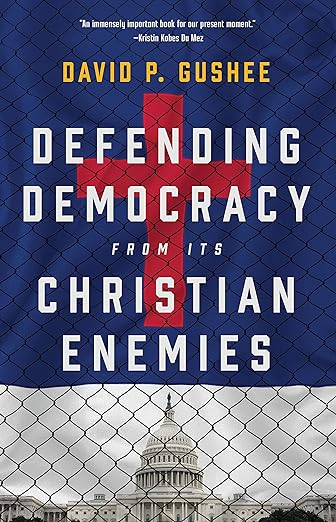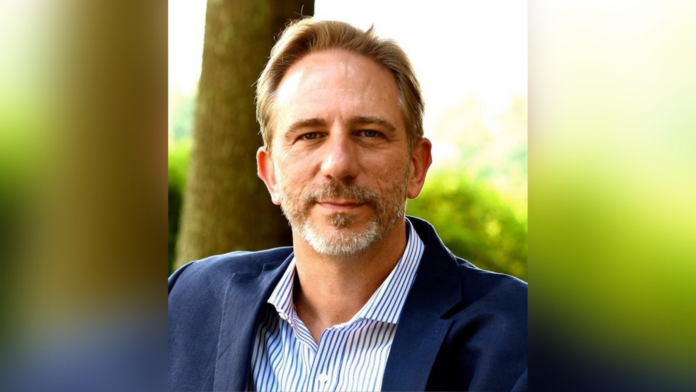Throughout his 30-year career in Christian ethics, the Rev. Dr. David Gushee has analyzed a variety of topics related to faith and politics through his books, with democracy a perpetual fixture in the background. With his 28th title, Mercer University’s Distinguished University Professor of Christian Ethics felt the need to write about the democratic system itself, why it’s worth defending, and recent threats brought forth by authoritarian Christians.
Defending Democracy from Its Christian Enemies, released in October by Eerdmans Publishing, has generated quite a bit of buzz already. Even before its release, pre-orders for the book exceeded the publishing company’s first-year sales projections, Dr. Gushee said.
Dr. Gushee began writing the book in late 2021, following a speech he gave on the issue at the Free University of Amsterdam, where he is chair of Christian social ethics. It became clear to him that he had much more to say, so it turned into his next book project.
“I noticed that a lot of the people who have been supportive of authoritarian politics in the United States and other countries are Christians, including some of the people who participated in the insurrection on Jan. 6 at the Capitol, and this is deeply troubling,” he said. “Something has gone wrong in how Christians are thinking about government and politics, and I needed to address that.”

His new book delves into the 2021 attack on the U.S. Capitol by a mob of supporters of former President Donald Trump, as well as similar events that have occurred in other countries, including Russia, Poland, Hungary and Brazil.
In these situations, citizens have followed leaders as they undermine democracy, resorting to violence or threats of violence, manipulating elections, undercutting the judicial branch, and embracing anti-democracy government theories, he said. As an example of the latter, some people are arguing there should be no separation between church and state, which is contradictory to the way the U.S. government was established.
“It all amounts to a weakening in democracy,” Dr. Gushee said. “Some Christians are so disturbed by cultural changes that they are beginning to turn away from democracy itself. They believe that these (changes) are terrible mistakes, and they are not satisfied that the democratic process is reversing them. They prove susceptible to politicians who promise to fix these problems, but sometimes they are going to fix these problems by setting aside democracy.”
America has taken its democracy for granted and assumed it would always be there, Dr. Gushee said. Many people don’t vote, and few have a good grasp on how the democratic system actually works.
“We have to pay attention to the structures of our government at every level and participate in favor of protecting democracy,” he said. “It’s time for us all to go back to school and try to protect what we’ve had in this country for 235 years. I’ve been reminded that anything that humans build, human beings can take apart.”
Defending Democracy asks Christians to lean on pro-democratic resources from scripture and tradition. Democracy doesn’t have to be secular, and Baptists are proof of that, Dr. Gushee said. This Chrisitan denomination has been defending democracy since its beginnings nearly 400 years ago.
Dr. Gushee said his book helps people to better understand the recent challenges to democracy and how and why they happened. He has had the opportunity to talk about it on some podcasts, and he hopes his book can provide important context as the United States nears another election.
“Understanding is empowering. I hope that Christians will be persuaded that democracy is worth defending, even when a particular election doesn’t give you what you want,” he said. “In a democracy, you don’t give up on the system when you lose. We’re at risk of people giving up on the system itself. I’m asking people not to do that.”










